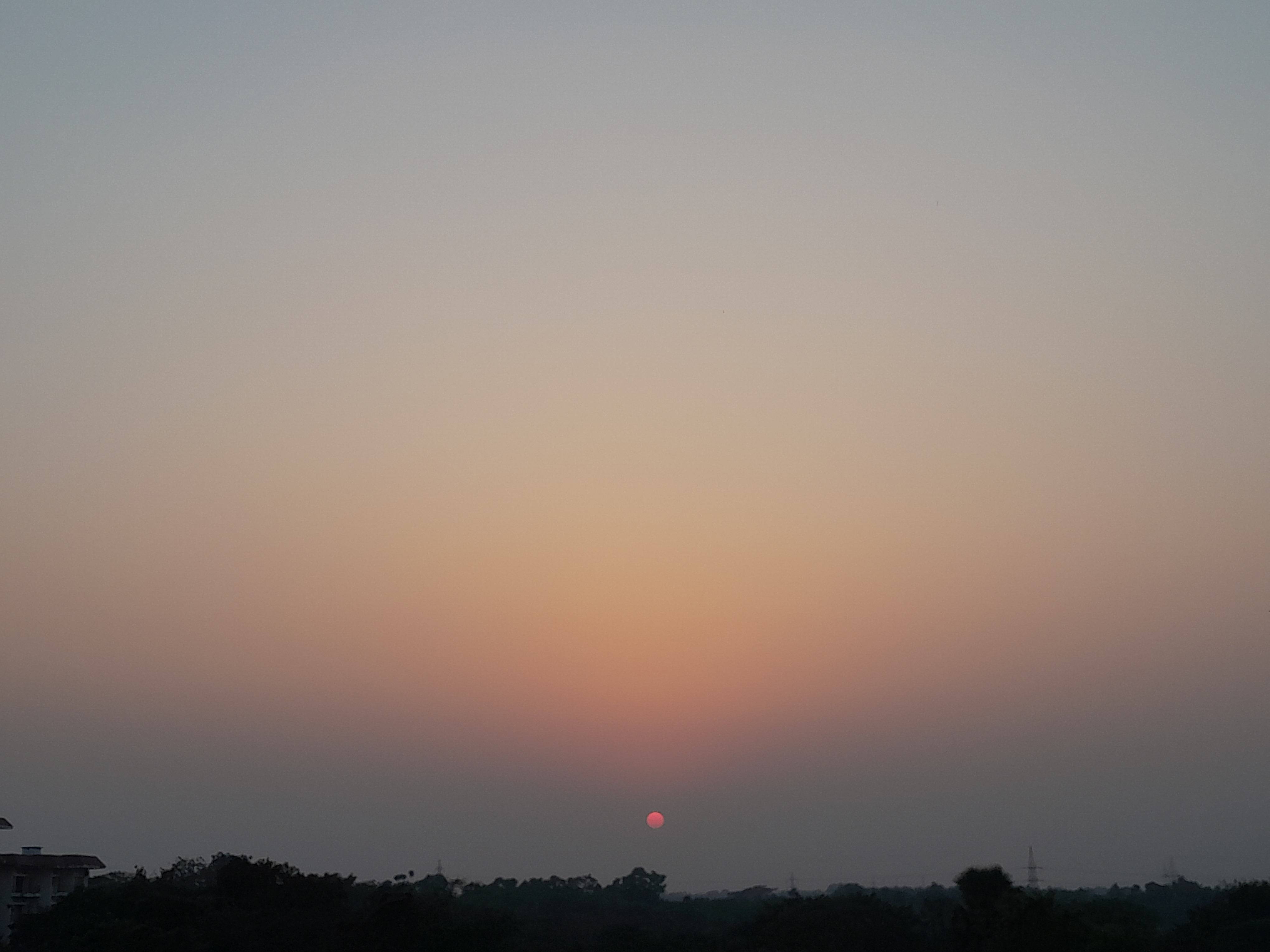This is a sunset in the Corinth gulf in Greece on a clear day taken from Loutraki. Date July 31/'17

On the left is the Peloponnese promontory, on the right the the promontory of lake Heraion.
On the way to lake Heraion I stopped on purpose in Loutraki and took the picture exactly because the weather conditions were perfect to show a perfect dip of the sun behind the water horizon. Such clear weather conditions may happen once or twice a year during the time the sun is in the interval over the water.
You say:
Everytime I see the pics of suset on beaches the sun appear to go all the way down to the surface of the sea
It is not the beach that allows for perfect dips of the sun, but the water horizon on the west. In your picture the reason you can see the horizon is because the land faces west over water. Sea water on the surface of the earth has the lowest distance from the center of mass of the earth because of the nature of fluids, so it is the level at which the image of the sun will begin to sink below a well defined horizon.
In my picture there is a very small interval where the sun sets over water. The rest of the time the sea horizon is much lower then the hills seen on the left and right and it gets worse in cloudy and misty weather.




